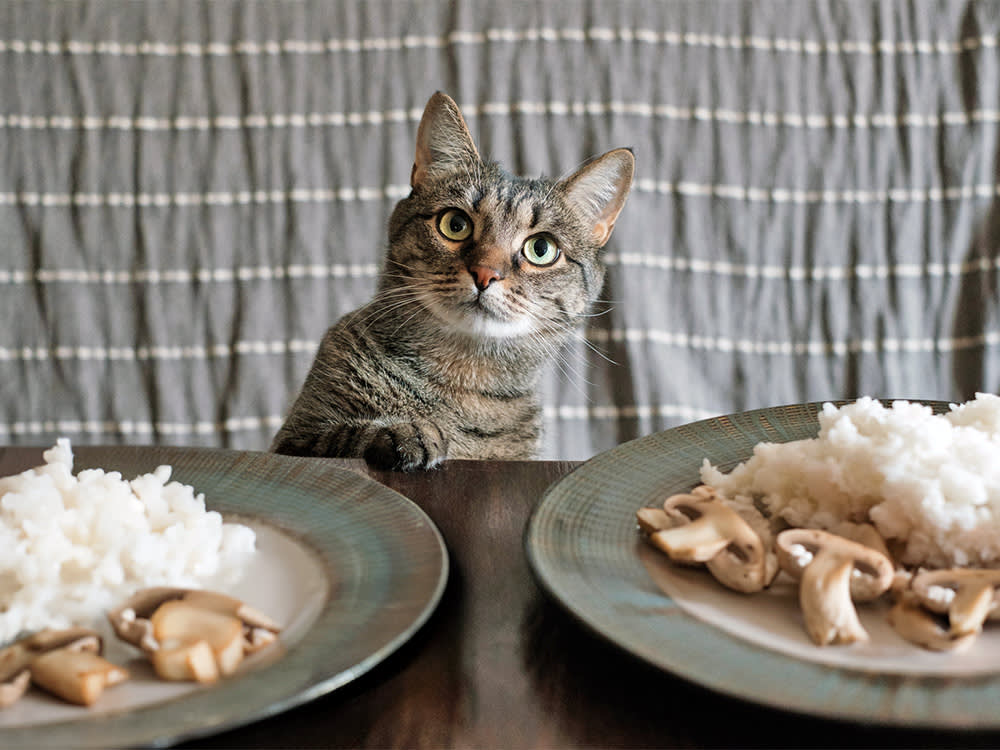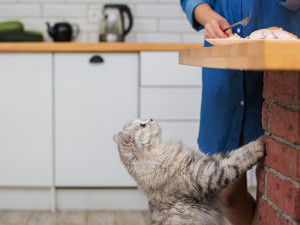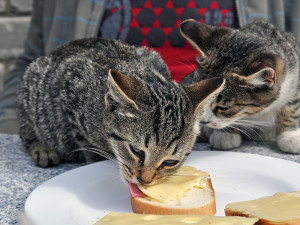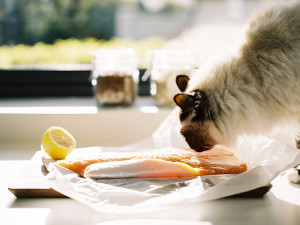Can Cats Eat Mushrooms?
Hold the stroganoff! Find out whether cats can safely eat mushrooms and the potential risks
Sharing food with your cat can be a heartwarming bonding experience, but what seems like a harmless treat might actually pose hidden dangers. While it’s tempting to slip your four-legged friend a tasty morsel from your plate, many human foods – such as mushrooms – can carry serious health risks for cats. To ensure your pet stays happy and healthy, it’s crucial to understand their unique dietary needs before introducing anything outside of their regular food. But what about mushrooms? Are they safe for cats, or could they be one of those foods to avoid?
The answer isn’t as straightforward as you might think. Some mushrooms may seem harmless, while others can be toxic or even deadly. So, before you share that seemingly innocent mushroom with your curious cat, it’s essential to know which ones are safe – and which could spell disaster. Keep reading to find out the risks, signs of mushroom toxicity and whether any mushrooms can be included in your cat’s diet safely.
Can cats eat mushrooms?
Sometimes. There are around 15,000 wild mushroom species in the UKopens in new tab, and while some are edible, others are toxic. For cats, the danger is even higher. Cats are less likely than humans or dogs to eat mushrooms, but if they do, the consequences can be severe.
Wild mushrooms, in particular, should never be fed to cats. Around five wild varieties contain deadly toxins, and even experts can struggle to tell poisonous varieties apart from safe ones. If your cat eats a wild mushroom, assume it’s toxic until proven otherwise and seek veterinary advice immediately.
Store-bought mushrooms – such as button, oyster and shiitake mushrooms – intended for human consumption are generally grown in controlled environments, so that their identity cannot be mistaken. Some studies suggestopens in new tab that mushroom species that are edible for humans may actually be toxic to cats, but this research is limited. A growing field in veterinary medicine uses mushrooms for their medicinal properties so they certainly can be beneficial, however this research is in its infancy.
Nutrition facts: mushrooms for cats.
Mushrooms are low in fat and calories, and they contain a moderate amount of fibre. They’re also packed with nutrients, offering a good source of protein, vitamins B, C and D, as well as minerals and antioxidants. Shiitake mushrooms, in particular, are believed to enhance immune function in some cases.
Are mushrooms good for cats?
While store-bought mushrooms may offer some nutritional value, they are not an essential part of a cat’s diet. The high protein content found in mushrooms can be well utilised by humans, and even dogs but cats are obligate carnivores. This means that biologically they require animal sources of proteins to survive.
Cats lack the enzymes required to break other sources of protein down into their component parts, which are vital for survival. As such, the nutritional benefit of mushrooms to cats is very limited, especially when weighed up against the potential risks.
Can cats eat all mushroom parts?
Different mushroom varieties have varying safety levels, and even for those deemed safe, it’s best to exercise caution. While some store-bought mushrooms may be safe raw, cooking them is recommended to reduce the risk of bacterial contamination. When preparing mushrooms for your cat, avoid using butter, oils or seasoning, as these can be harmful to your cat.
Additionally, keep in mind that certain parts of mushrooms, such as tougher stalks and outer skins, can be difficult for cats to digest which can lead to gastrointestinal discomfort. As for wild mushrooms, remember that they’re heat-stable, so even cooking them doesn’t eliminate their toxins.
Are mushrooms completely safe for cats?
While supermarket mushrooms are often considered non-toxic, there’s not enough evidence to guarantee their safety for cats. The nutritional benefit is also too small to justify the risks, and feeding mushrooms at home might encourage your cat to forage for them in the wild – a behaviour that could prove fatal.
If your cat eats a wild or unidentified mushroom, contact your vet immediately for advice.
Foods that are good for cats
While not all food items are safe, there are a few that can make occasional healthy treats for your cat in moderation:
Raspberries can make a delicious sweet treat for your cat.
Nuts are considered a healthy snack, if offered in moderation.
Foods that are dangerous for cats
Much like mushrooms, certain foods can be toxic to cats and should be strictly avoided. They include:
Grapes and dried derivatives such as raisins.
Sadly you should not share a bar of chocolate with your cat, either.
The bottom line: can cats eat human food?
Though some human food might be safe for cats in moderation, not everything we eat is safe for cats, including mushrooms, and the risks of generally outweigh the benefits. Cats have unique dietary requirements as obligate carnivores, meaning they thrive on animal-based proteins. Many common foods we enjoy – such as onions, chocolate, grapes and even certain dairy products – can be harmful or toxic to cats. There are plenty of other safer treats to offer your four-legged friend. Always consult your vet before introducing new foods to your cat’s diet, and if they accidentally ingest a wild mushroom, seek immediate veterinary care.
Frequently asked questions
Are wild mushrooms toxic to cats?
There are thousands of varieties of wild mushroom in the UK, many of which contain toxins that can be poisonous to cats, leading to severe illness and in many cases death.
Can cats eat store-bought mushrooms?
Store-bought mushrooms are generally considered safe, but they offer little nutritional value and may encourage dangerous foraging behaviour.
What should I do if my cat eats a wild mushroom?
Immediately restrict their access to prevent further consumption and call your vet for more specific advice. Taking a photo or keeping a sample of the mushroom can be useful for identification purposes. You can also call the Animal PoisonLineopens in new tab on 01202 509 000. The team works closely with mycologists at the Fungus Conservation trust who will be able to identify the mushroom ingested, so that you can be given tailor-made advice.
Can mushrooms cause allergic reactions in cats?
Mushrooms can, very rarely, cause allergic reactions in cats. Symptoms may include itching, gastrointestinal issues, or, in severe cases, respiratory distress.
How can I keep my cat safe from mushroom poisoning?
Avoid feeding your cat any mushrooms to prevent them from viewing mushrooms as a potential food source. Never allow your cat to consume wild or unidentified mushrooms.
What are the symptoms of mushroom poisoning in cats?
The symptoms vary depending on the type of toxin the mushroom containsopens in new tab and can appear anywhere from 30 minutes to 14 days following ingestion. Typically, you may notice vomiting, diarrhoea and lethargy, progressing to seizures and collapse.
Is there an antidote to mushroom poisoning?
Unfortunately, there isn't an antidote for mushroom poisoning in general, only for muscarine poisoning. Muscarine is natural product found in certain specific toxic mushroom types, including Inocybe ‘fibre caps’opens in new tab. If you suspect your cat has eaten a wild mushroom, contact your vet immediately for advice.








